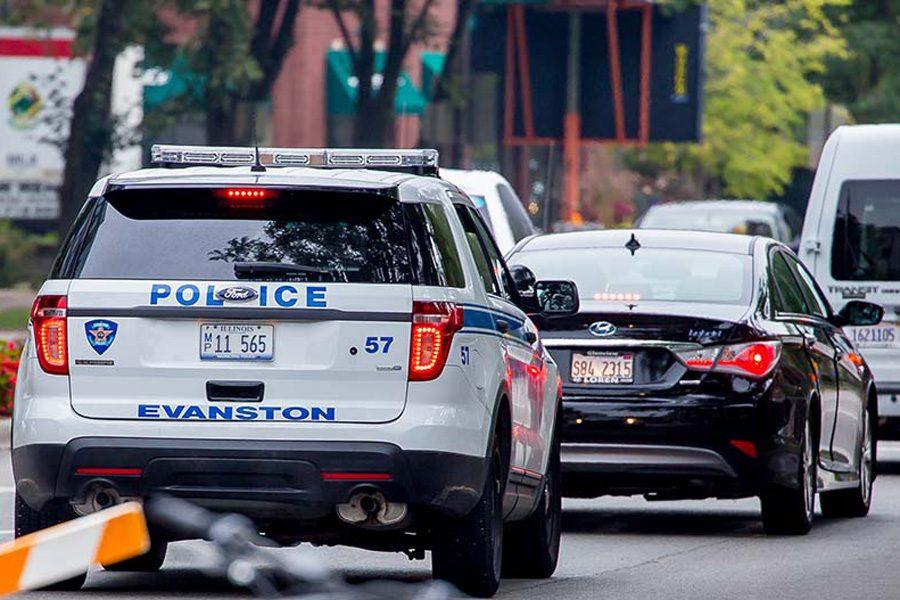Evanston police in talks with University police to secure body cameras
Zack Laurence/Daily Senior Staffer
Evanston Police Department may collaborate with Northwestern to fund body cameras for officers. EPD was denied a federal grant in 2015 for the cameras.
September 29, 2016
The Evanston Police Department is in preliminary talks with University Police to obtain body cameras, the city manager said.
The exploratory discussions come one year after EPD was denied a federal grant of more than $600,000 for the cameras.
City manager Wally Bobkiewicz said the two police forces have a close working relationship and that a partnership could maximize the budget for the cameras. Bobkiewicz said a partnership could involve one shared brand of camera and one system for storing and managing the data.
“It helps us lower some of our costs, because … rather than buy 50 body cameras, we could buy 250 body cameras,” Bobkiewicz said. “The economy of scale is involved. That’s really the benefit for us.”
An Illinois law signed by Gov. Bruce Rauner in August 2015 set state standards for officer-worn body cameras. In Evanston, there have been debates over privacy and cost.
A 2015 study indicates that police officers are more cautious and risk averse when wearing body cameras, but Evanston police Cmdr. Joseph Dugan said he doesn’t believe Evanston police officers would act any differently on the job. Car cameras, cell phones and store security cameras have always been watching police officers, so body cameras may not make too much of a difference, Dugan said.
However, Dugan said body cameras are an effective way to capture an entire incident from start to finish. Cell phones, he said, are problematic because they usually only start recording once an incident has escalated and fails to provide context on the preceding events.
Dugan seemed confident that Evanston police would get body cameras eventually.
“It’s not a matter of if I am going to get body cameras, it is a matter of when I am going to get body cameras,” he said.
Evanston police and UP are tightly knit, Dugan said, with the two often working jointly on detective work and investigations. He said EPD is always looking for ways to collaborate with other partners, especially when it comes to making projects more cost-effective.
UP did not respond to a request for comment by the time of publication.
Although Dugan foresees the eventual use of body cameras, some in the Northwestern community are skeptical of their effectiveness.
Macs Vinson, Associated Student Government executive vice president, is unsure about body cameras’ impact on police violence. Vinson said it concerns him that there have been cases in which police officers have been caught on camera shooting unarmed victims and haven’t been brought to justice.
“We have to go further to ensure that the first reactions of a police officer with a black or brown body is not to reach for their weapon, but to de-escalate situations that has everyone walking away safely,” Vinson said. “When a police officer is presented with a black or brown body in front of them, we need to make sure that their first inclination isn’t, ‘This person could be dangerous.’”
Julia Jacobs contributed reporting.
Email: [email protected]
Twitter: @samkrevlin


